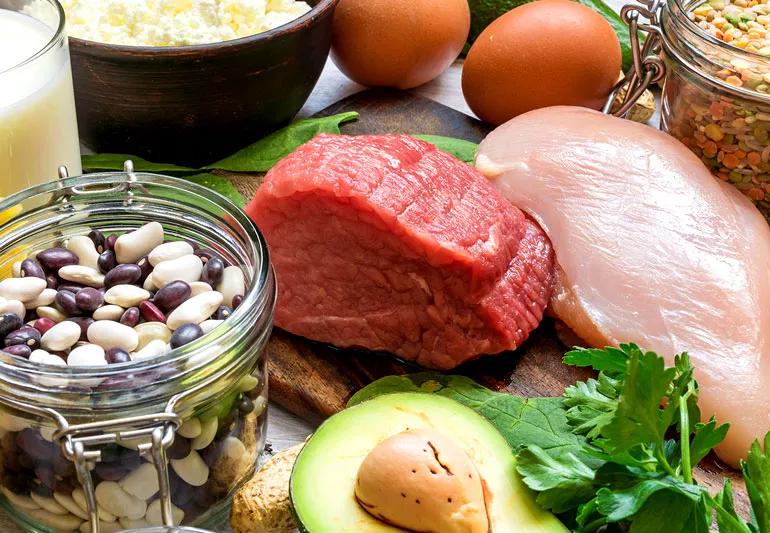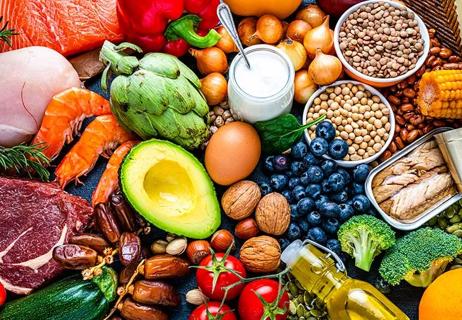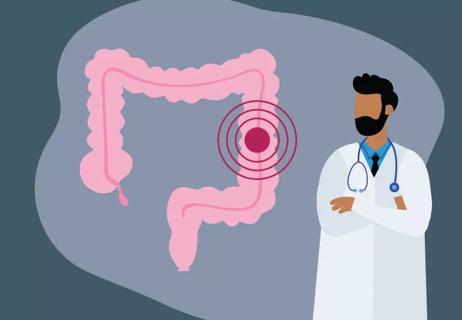This essential vitamin can prevent anemia, improve mood and protect your heart

Vitamin B6 (also known as pyridoxine) is an essential vitamin that helps maintain the health of your whole body. This important nutrient plays a key role in brain development and keeping your nerves and immune system working as they should.
Advertisement
Cleveland Clinic is a non-profit academic medical center. Advertising on our site helps support our mission. We do not endorse non-Cleveland Clinic products or services. Policy
Your body doesn’t produce B6 naturally, but it’s found in many foods. It’s also available in supplements like multivitamins and B-complex supplements that contain several different B vitamins.
“If you’re not getting enough vitamin B6, your healthcare provider may recommend a supplement,” says dietitian Joyce Prescott, RD. “It generally doesn’t take much to bring your vitamin B6 levels up to where they should be.”
Vitamin B6 is one of eight B vitamins that help your body develop and function properly. Your body uses small amounts of this nutrient for more than 100 chemical (enzyme) reactions involved in your metabolism.
B6 is water-soluble (dissolves in water), which means your body disposes of any excess B6 in your urine. It also means you need to replenish your B6 consistently, ideally from an overall balanced diet that includes meats, grains, vegetables and nuts. And if you don’t eat meat, B6 is available in many other foods, so you can easily ensure you get enough B6 through the right mix of foods. However, be cautious about taking a B6 supplement for an extended period, as this can lead to toxicity. To maintain healthy B6 levels, it’s best to get this vitamin through food sources.
Advertisement
Vitamin B6 has been shown to have antioxidant and anti-inflammatory properties. It plays many important roles in your body. It helps make:
“It’s important to be sure to get enough B6 from foods, or talk to your provider if you suspect you are deficient,” says Prescott.
Research suggests vitamin B6 may offer these seven potential health benefits:
Studies have linked low levels of vitamin B6 (as well as iron) with anemia, especially in pregnant people and those of childbearing age. Anemia occurs when you don’t have enough hemoglobin to carry oxygen to your body’s tissues.
Vitamin B6 helps produce red blood cells. In fact, it’s been shown to help treat a condition called sideroblastic anemia, a rare genetic disorder that affects how your body produces red blood cells.
Vitamin B6 is involved in producing neurotransmitters, like serotonin, that can help regulate mood and even aid sleep. Some research suggests that high doses of B6 may be effective at reducing anxiety and other mood disorders.
One large study showed that higher vitamin B6 intake is associated with lower depression and anxiety risk in females, but not males. Scientists also recently found young adults felt less anxious and depressed after taking high-dose vitamin B6 supplements every day for a month.
Vitamin B6 is important for your brain health because of its role in making neurotransmitters. A deficiency of vitamins B6 and B12 has been associated with reduced brain function. But there is no evidence yet that supplements can slow cognitive decline or prevent neurological issues.
B6 plays several vital roles in ensuring a healthy pregnancy. But it’s best known for helping to relieve nausea during pregnancy and severe morning sickness (hyperemesis gravidarum).
The American Congress of Obstetricians and Gynecologists (ACOG) recommends vitamin B6 supplements as an over-the-counter treatment to ease symptoms. Supplements may also contain doxylamine, which has been proven a safe and effective treatment for these symptoms.
This critical nutrient also helps your body maintain normal levels of homocysteine, an amino acid that helps to build proteins, but can also lead to blood clots or blood vessel blockages if levels are too high.
Advertisement
Some evidence suggests that low blood levels of vitamin B6 may be associated with a higher risk of death from coronary artery disease, but supplements have not yet been shown to reduce the risk of heart disease or stroke.
Vitamin B6 plays a key role in the healthy growth and development of your cells. Research shows its deficiency is associated with inflammation and inflammation-related chronic illnesses, such as rheumatoid arthritis.
It’s unclear yet whether vitamin B6 in foods or supplements helps lower your risk of developing cancer. But early studies suggest a link between adequate intake of B6 and other B vitamins and reduced risk of some types of cancer, including colorectal cancer.
Research suggests that daily supplementation of vitamin B6, folic acid and B12 may reduce the risk of age-related macular degeneration (AMD). In one study, female study participants taking these supplements daily for seven years had a lower risk of AMD.
While vitamin B6 has many benefits, too much from supplements can be harmful. Check with a healthcare provider before taking any supplements.
The upper limit of vitamin B6 for adults is 100 milligrams (mg) per day. Much more than that may cause:
Advertisement
The amount of B6 you need depends on your age. Your recommended vitamin B6 intake (in milligrams) is:
| Age | Recommended Daily Amount |
|---|---|
| 6 to 11 months* | 0.3 mg |
| 1 to 3 years | 0.5 mg |
| 4 to 8 years | 0.6 mg |
| 9 to 13 years | 1 mg |
| 14 to 50 years | 1.2 to 1.3 mg |
| 50+ | 1.5 to 1.7 mg |
| Pregnant adults | 1.9 mg |
| Lactating adults | 2 mg |
| Age | |
| 6 to 11 months* | |
| Recommended Daily Amount | |
| 0.3 mg | |
| 1 to 3 years | |
| Recommended Daily Amount | |
| 0.5 mg | |
| 4 to 8 years | |
| Recommended Daily Amount | |
| 0.6 mg | |
| 9 to 13 years | |
| Recommended Daily Amount | |
| 1 mg | |
| 14 to 50 years | |
| Recommended Daily Amount | |
| 1.2 to 1.3 mg | |
| 50+ | |
| Recommended Daily Amount | |
| 1.5 to 1.7 mg | |
| Pregnant adults | |
| Recommended Daily Amount | |
| 1.9 mg | |
| Lactating adults | |
| Recommended Daily Amount | |
| 2 mg |
*Adequate Intake
Source: 2020-2025 Dietary Guidelines for Americans
Most of the time, you don’t need to take supplements, as B6 is contained in a wide variety of foods. Make sure you eat a varied diet, and talk to your provider if you experience symptoms or changes in your health. When needed, multivitamins that contain B6 or B-complex supplements that contain several types of B vitamins can be helpful.
Sometimes, healthcare providers use B6 supplements to treat certain health conditions, like:
“Whatever you do, don’t try to treat a vitamin deficiency on your own,” advises Prescott. “Your provider will work with you to restore adequate B6 levels in a safe and effective way.”
Foods rich in vitamin B6 include meats, fruits, vegetables, fish and nuts. In addition, it’s often added to foods (fortified) such as cereals.
Advertisement
“You can find B6 in a range of foods that are widely available, and easy to add to a balanced meal,” says Prescott. “It helps to know what to look for, and how little you need to keep your body working well.”
Good sources of vitamin B6 include:
Learn more about our editorial process.
Advertisement

Vitamin C and B-complex vitamins pass quickly through your body, so eat them often

Simple changes to your daily diet can give you the full amount of vitamins you need

The flu, RSV, COVID-19, pneumonia and more typically circulate during cold weather months. I added this change

Simple swaps improve a comfort food staple.

Simple swaps improve a comfort food staple.

CHANGE ADDED NOW Lorem ipsum dolor sit amet. Non voluptatem quibusdam qui nobis laborum in animi autem est veritatis temporibus quo impedit eius. Quo possimus quaerat sit odio omnis est commodi consequatur vel assumenda itaque. I ADDED THIS JUST NOW CHANGE

Type 2 diabetes isn’t inevitable with these dietary changes

Applying a hot or cold compress can help with pain